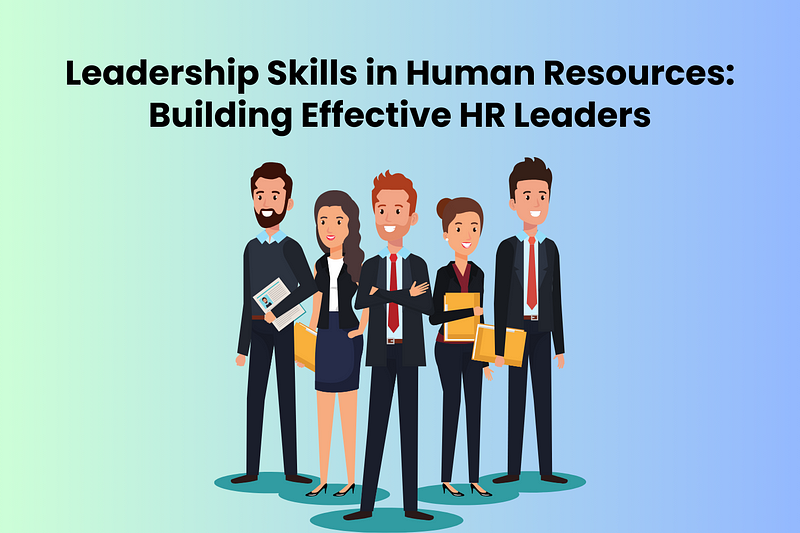
In the world of modern businesses, Human Resources (HR) stands as the backbone, driving organisational success through talent management, employee development, and strategic workforce planning. At the heart of HR lies the need for effective leadership, steering the department towards excellence. Today, the professionals in HR require a set of skills that go beyond traditional administrative roles. HR leaders must possess a diverse skill set, combining HR Training Courses and inherent Human Resources Skills to navigate the complexities of the contemporary workplace.
Table of Contents
- Understanding Crucial Human Resources Skills
- Importance of HR Training Courses
- Building Effective HR Leaders
- Conclusion
Understanding Crucial Human Resources Skills
The role of HR leaders has evolved significantly over the years. They are no longer confined to managing administrative tasks or overseeing recruitment. Instead, they are pivotal in shaping organisational culture, fostering employee engagement, and aligning HR strategies with business objectives. To excel in the field, HR professionals need to acquire and refine a comprehensive set of leadership skills.
Strategic Vision and Business Acumen
HR leaders must possess a strategic mindset, understanding how HR initiatives align with overall business goals. This involves analysing market trends, foreseeing future challenges, and crafting HR strategies that contribute to the organisation’s success.
Effective Communication
Exceptional communication skills are imperative for HR leaders. They must communicate policies, changes, and initiatives clearly to all levels of the organisation. Moreover, they should be proficient in listening actively, understanding employee concerns, and effectively providing solutions.
Adaptability and Flexibility
The HR landscape is ever-evolving, demanding leaders who are adaptable to change and capable of navigating through uncertain situations. Flexibility in approach, policies, and strategies is crucial to meet the changing needs of a diverse workforce.
Emotional Intelligence
Understanding emotions of oneself and others is a fundamental trait for HR leaders. This involves empathy, self-awareness, and the ability to manage emotions effectively, fostering better relationships and conflict resolution within the workplace.
Leadership and Team Building
HR leaders should be adept at building and leading high-performing teams. They need to inspire and motivate employees, fostering a positive work culture that encourages collaboration and innovation.
Importance of HR Training Courses
To cultivate these essential human resources skills, HR professionals can benefit immensely from specialised HR training courses. These courses offer a structured learning environment, providing insights into the latest HR trends, best practices, and strategies. Whether it’s mastering the art of talent acquisition, honing leadership skills, or understanding HR analytics, these courses offer a comprehensive platform for skill enhancement.
Leadership Development Programs
These programs focus on nurturing leadership qualities and helping HR professionals develop strategic thinking, decision-making abilities, and effective communication skills essential for leadership roles.
HR Analytics and Technology Courses
With the advent of technology in HR, understanding HR analytics and leveraging HR technologies has become crucial. Courses in this domain equip HR leaders with the skills to `interpret data, make data-driven decisions, and implement technology to streamline HR processes.
Diversity, Equity, and Inclusion (DEI) Training
HR leaders need to champion diversity, equity, and inclusion in diverse workplaces. Courses in DEI provide insights into creating inclusive environments, managing diverse teams, and fostering a culture of belonging.
Change Management and Adaptability Training
As organisations undergo constant change, HR leaders need to navigate change effectively. Training in change management equips them with the tools to lead teams through transitions smoothly.
Building Effective HR Leaders
Combining these HR training courses with inherent human resources skills forms the cornerstone of effective HR leadership. It’s not just about acquiring knowledge but applying it in real-world scenarios, developing a leadership style that resonates with the organisation’s culture and values.
Furthermore, mentorship programs, networking opportunities, and continuous learning through workshops and conferences are essential for HR leaders to stay updated with industry trends and expand their skill sets.
Conclusion
HR leaders must blend traditional HR knowledge with contemporary leadership traits. Prioritizing continuous learning through specialized Business Skills Courses is crucial for honing skills and ascending to leadership roles. This approach enables HR professionals to drive organizational success through effective people management, strategic planning, and fostering a thriving workplace culture.






